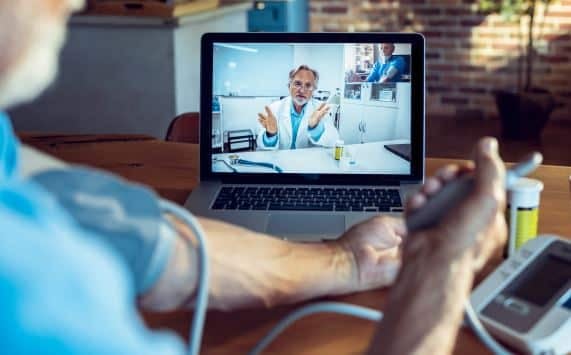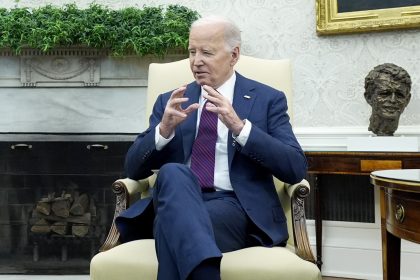Schatz Urging Colleagues to Give Telehealth a Boost in Lame Duck

WASHINGTON — Sen. Brian Schatz, D-Hawaii, is urging his colleagues to take up legislation during the upcoming lame duck session of the 117th Congress to allow Medicare beneficiaries to more easily have virtual appointments with their doctors.
Schatz has led a bipartisan effort since 2000 to extend the Department of Health and Human Services’ pandemic rules that allow Medicare beneficiaries to utilize telehealth services and to expand the types of health care providers eligible to provide telehealth.
These provisions will expire with the end of the health care emergency unless congressional leaders act to extend them or make them permanent.
The CONNECT for Health Act, introduced by Schatz and Sen. Roger Wicker, R-Miss., would expand the use of telehealth and remote patient monitoring services in Medicare, aiming to advance the goals of cost savings and quality care.
It does so primarily by eliminating provisions in current statute (42 U.S.C. 1834[m]) that constrain telehealth reimbursement by imposing geographic limitations, originating site restrictions and limitations on covered codes.
“The [pandemic] has shown us that telehealth works, it’s popular, and it’s here to stay,” said Schatz in a written statement. “Our comprehensive bill makes it easier for more people to safely get the care they need no matter where they live.”
The CONNECT for Health Act Telehealth would:
- Create a bridge program to help providers transition to the goals of the Medicare Access and CHIP Reauthorization Act and the merit-based Incentive Payment System through using telehealth and remote patient monitoring.
- Allow telehealth and RPM to be used by qualifying participants in alternative payment models.
- Permit the use of remote patient monitoring for certain patients with chronic conditions.
- Allow, as originating sites, telestroke evaluation and management sites; Native American health service facilities; and dialysis facilities for home dialysis patients in certain cases.
- Permit further telehealth and RPM in community health centers and rural health clinics.
- Allow telehealth and RPM to be basic benefits in Medicare Advantage, without most of the aforementioned 1834(m) restrictions.
- Clarify that the provision of telehealth or RPM technologies made under Medicare by a health care provider, for the purpose of furnishing these services shall not be considered “remuneration.”
In a recent interview with Politico, Schatz described telehealth as “the future of health care,” though he acknowledged “in-person visits will never be totally replaced.”
“This is the one space in health care that is totally bipartisan and has zero downside,” he told Politico’s Ben Leonard.
Dan can be reached at [email protected] and at https://twitter.com/DanMcCue.
























